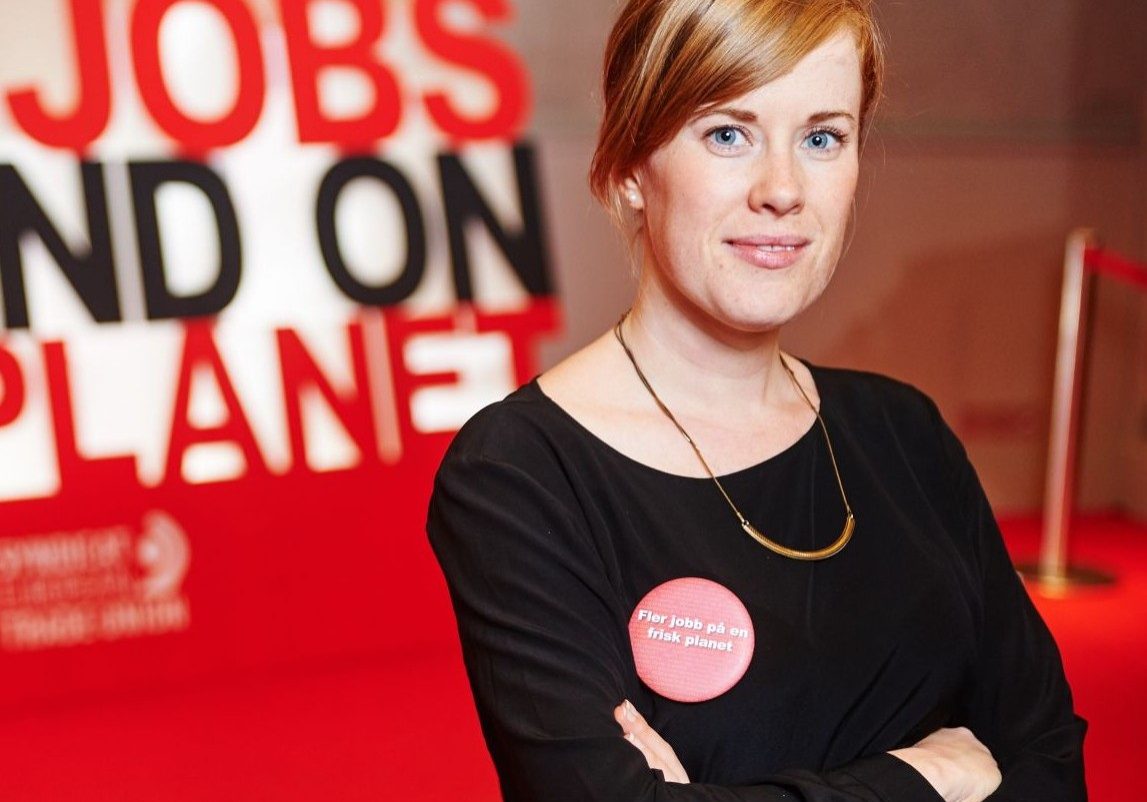The Eurocadres blog
Climate Change is Union Business
With less than a month until world leaders will meet in Paris for the UN climate conference, COP21, the temperature is rising with the warmest 1 November in Brussels since measurements began.

Climate change is the biggest threat that we stand in front of today and the window of opportunity to act is quickly decreasing. The global emissions of greenhouse gases continue to climb and the business as usual scenario takes us to a global temperature increase of +3 to 4°C compared to pre-industrial levels. This will have grave natural, and social consequences, where inaction is likely to lead to more than 200 million climate change refugees and where the economic costs of inaction have been estimated to between 5 and 20 per cent of global GDP by 2050. We need to stay below +2°C if we want to give humanity a chance to adapt to the on-going climate changes.
”climate change is not employment friendly, constituting one of the biggest challenges for the global trade union movement.”
In addition, climate change is not employment friendly, constituting one of the biggest challenges for the global trade union movement. We need to call on governments to ensure that the transition to a greener economy is a Just Transition, that decent work and a low carbon economy go hand in hand.
Support is mounting for a positive alternative because a new sustainable economy IS possible, a zero carbon economy can be profitable. Political regulations on the economy, such as the upcoming Paris deal, will hopefully force us to keep within the planetary climate boundary and to a tidal wave of innovation and technology.
Professionals and managers have key roles to play in this respect as they are at the forefront of the development in technological fields, whose activities are essential in order to achieve good results in combating climate change. Governments therefore need to increase funding for research and development to support this shift.
Sustainable higher education is also important to ensure that professionals and managers are equipped with the relevant skills in order to ensure an effective, job-rich transition. In a new world of work the urgent need for a green transition coupled with the expectedly fast paced transformation due to digitalisation, mean that inventive forms of life-long learning structures need to be explored. As with any transition to a new economy it is important to have a longer-term perspective and identify where there will be skills gaps, focusing on the areas where education, vocational training and requalification of professionals are most important.
As trade unions we need to walk the talk and bring environmental and climate concerns into social dialogue, demand long-term sustainable prospects for employees’ pension funds and be actively engaged to reduce carbon emissions in our workplaces and activities.
”As trade unions we need to walk the talk and bring environmental and climate concerns into social dialogue, demand long-term sustainable prospects for employees’ pension funds and be actively engaged to reduce carbon emissions in our workplaces and activities.”
Our workplaces generate more CO2 emissions than our homes but increased energy efficiency of buildings is an opportunity for a lot of money to be saved with healthy working conditions as a plus benefit. Investments need to be made to reduce carbon emissions and costs, looking at energy usage, IT equipment, sustainable transport, recycling and water usage.
There are no jobs on a dead planet and clear leadership has never been more needed. A global deal needs to be secured with stronger commitments to reduce emissions and ensuring the necessary funding before it becomes too expensive.
Join the climate marches organised all across Europe on 28 and 29 November.
Visit the ETUC dedicated page for more information.
Visit the UNI Global Union dedicated page for more information.

The author
Hanna Sjölund
UNI Europa Policy Advisor for Professionals & Managers
Member of Eurocadres Executive Committee
